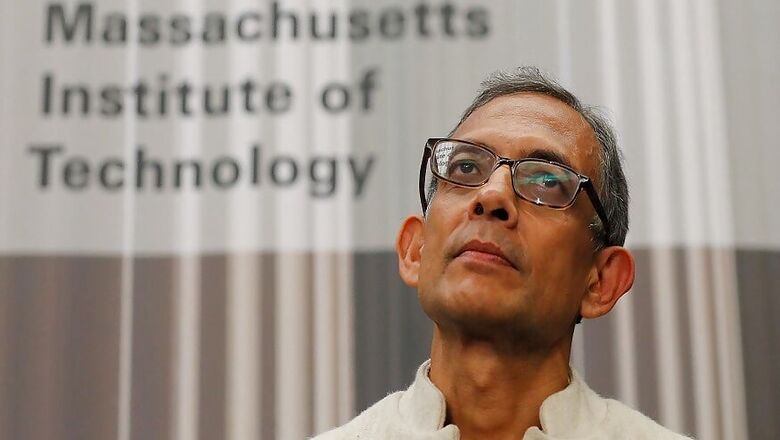
views
New Delhi: Expressing concern over the slowing growth of the Indian economy, Indian-American Nobel Laureate Abhijit Banerjee in an exclusive interview to News18's sister channel CNBC-TV18 said that the government should make policies which work and not policies which they imagine will work.
Banerjee, who on Monday won the 2019 Nobel Economics Prize along with Esther Duflo and Michael Kremer for his work in fighting global poverty, told CNBC-TV18’s Latha Venkatesh that the “Indian economy is on a shaky ground” and “the government should do pilots of policy initiatives more carefully”.
"I think there is always a little bit of a willingness in India to announce a policy because they sound good or they have a political purpose. The general message is you should carefully evaluate them, understand whether the policy works or not and take it from there. Even now I think it is not that the policies are evaluated based on accepted criteria and looked at as an option. Pradhan Mantri says it, it happens. That style of thinking is partly what we are resisting," he said.
His statement on policy initiatives comes just days after finance minister Nirmala Sitharaman conceded there were “flaws” in the implementation of the Goods and Services Tax. ‘It might probably give you difficulties but I am sorry, it's the 'kanoon' (law) of the country now," she had said.
Banerjee has also been critical of the Narendra Modi government’s demonetisation exercise previously, telling News18.com in a 2017 interview that he did not understand the logic behind it.
Banerjee later also held a press conference at the Massachusetts Institute of Technology, where he said that the Indian economy is "doing very badly" even as the government is increasingly recognising that there is a problem.
Referring to the numbers put out by the National Sample Survey, which come out every 1.5 years and give estimates about the average consumption in urban and rural areas in India, Banerjee said, "The fact that we see in that is that between 2014-15 and 2017-18, that number has slightly gone down. And that's the first time such a thing has happened in many many many many many years so that's a very glaring warning sign."
"There is enormous fight going on in India about which data is right and the government has a particular view of (that) all data that is inconvenient to it is wrong. But nonetheless, I think that this is something that I think even the government is increasingly recognising that there is a problem. So the economy slowing very very fast. How fast we don't know, there is this dispute about data but I think fast," he said.
Banerjee added that he does not know exactly what to do. "The government has a large deficit but right now it's sort of at least aiming to please everybody by pretending to hold to some budgetary targets and monetary targets," he said.
The 58-year-old Jawaharlal Nehru alumnus praised some of the government initiatives, saying that NREGA (National Rural Employment Guarantee Scheme), a UPA-era scheme, has been a solid success.
"The evidence is that majority of income gains from NREGA don’t come from NREGA itself but from the fact that it raises wages because people don’t have to work on shift jobs at low wages and that has been a very big part of poverty," the MIT Professor said.
He added that the rural roads program (PMGSY) has also been effective as it made it much easier for people to migrate, to go where the jobs are.
He also appreciated the idea behind the PM-Kisan scheme, saying that the idea to move away from support prices towards income transfers was “sensible”, but the amount is not huge. Under the PM-Kisan scheme, farmers are given Rs 6,000 per annum in three instalments.
Speaking on what ails the Indian economy, Banerjee said that data suggests that rate of growth of income in rural areas has fallen a lot since 2014. "...Huge part of unskilled jobs in India are in real estate. As construction slows down rural income growth comes to a halt," he said.




















Comments
0 comment